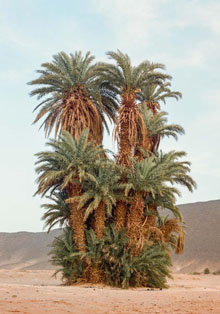Until 15 September, Casa Árabe in Madrid is presenting the exhibition Paisajes efímeros del sol (Ephemeral Landscapes of the Sun), which opens this evening at 8 pm. Admission is free until full capacity is reached. The event will be held in Spanish and English.
This exhibition is a group show that won the 2024 edition of the NUR call for entries, organised in collaboration with PhotoEspaña. The exhibition is structured around a group of artists from Africa and the Middle East born in the 1980s and 1990s: Roger Anis, M’hammed Kilito, Salih Basheer, Imane Djamil, Ebti Nabag, Yumna Al Arashi, Tanya Habjouqa, Abdallah Al Khatib and Leila Chaïbi.
In Arab societies, everything is in motion, even if sometimes the mirrors remain immobile. In the waiting, there are those who are used to the fleeting, to destruction and reconstruction, to the game of draughts at a makeshift table in the medina, to the rebirth of each day at a souk stall, putting up for sale the objects that are put away every night. Because the street is also a landscape of ephemeral architecture. And knowing that nothing is eternal is part of knowledge.
This is confirmed by the contemporary artists who account for population phenomena, such as migrations or persecutions and imprisonment, but also for the transitions that time operates on societies and individuals. In this sense, photography and film offer unique testimonies of how sensibilities change and the shifts between the visible and the invisible take place.
In the photographs and audiovisual proposals of the artists in the exhibition, they explore perpetual movement from perspectives that form the backbone of the exhibition’s chapters. Nature in flight begins the journey, representing the iconic and at the same time threatened existence of the Nile River and the Maghreb oases. Exodus evokes the hasty escapes caused by orphanhood and war (and persecution in Sudan), or the incessant departure of migrants from the African coast to the Canary Islands. Life in circles shows the women who sustain their homes with street stalls (like the tea ladies in Khartoum) or the citizens of a Palestinian refugee camp besieged by foreign conflicts who can find no way out. Finally, Mutations is a section that approaches the ways in which the tangible meets the ancestral, poetic and mystical worlds. A transformation that can make it easier to lose fears, to relax questions of gender and identity and, ultimately, to trust in joy and in life.







